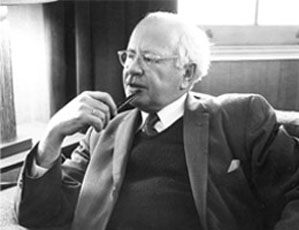Top 59 Paganism Quotes & Sayings
Explore popular Paganism quotes.
Last updated on April 14, 2025.
There is a calamitous difference between a people who have been immersed in paganism for centuries and a post-Christian society. While the culture of the latter may carry a deep tradition influenced by Christian values, its posture of rebellion will give it a direction that is more explicitly and consciously anti-Christian.
The Greeks adored their gods by the simple compliment of kissing their hands; and the Romans were treated as atheists if they would not perform the same act when they entered a temple. This custom, however, as a religious ceremony declined with paganism,but was continued as a salutation by inferiors to their superiors, or as a token of esteem among friends.
Our adversaries, numerous and formidable, will say, and will have the right to say, that our Principe CrÇateur is identical with the Principe GÇnÇrateur of the Indians and Egyptians, and may fitly be symbolized as it was symbolized anciently, by the linage...To accept this in lieu of a personal God is to abandon Christianity and worship of Jehovah and return to wallow in the styles of Paganism.
It is to a dramatist, which is to say, to an unfrocked psychoanalyst, stunning that that which has sustained the Left in my generation, its avatar, its prime issue, has been abortion. For, whether or not it is regarded as a woman's right, an unfortunate necessity, or murder, which is to say, irrespective of differing and legitimate political views, to enshrine it as the most important test of the Liberal, is, mythologically, an assertion to the ultimate right of a postreligious Paganism.
Within evangelicalism is a distressing drift toward accepting a Christianity that does not demand a life-changing walk with God. Many evangelicals (today) do not realize that the church has always been an island of righteousness in a sea of paganism, but as a result they turned the world upside-down.
God warned Israel, "And if thou wilt make me an altar of stone, thou shalt not build it of hewn stone: for if thou lift up thy tool upon it, thou hast polluted it" (Ex. 20:25). To pollute something is to make it ordinary. God insists that any approach crafted by human ingenuity will produce a worship system just like all the pagan systems in the world. In other words, it will be common or profane - just like everyone else's paganism.
I studied the Quran a great deal. I came away from that study with the conviction that by and large there have been few religions in the world as deadly to men as that of Muhammad. As far as I can see, it is the principal cause of the decadence so visible today in the Muslim world and, though less absurd than the polytheism of old, its social and political tendencies are in my opinion more to be feared, and I therefore regard it as a form of decadence rather than a form of progress in relation to paganism itself.
The slightest force, when it is applied to assist and guide the natural descent of its object, operates with irresistible weight; and Jovian had the good fortune to embrace the religious opinions which were supported by the spirit of the times and the zeal and numbers of the most powerful sect. Under his reign, Christianity obtained an easy and lasting victory; and, as soon as the smile of royal patronage was withdrawn, the genius of Paganism, which had been fondly raised and cherished by the arts of Julian, sunk irrecoverably in the dust.
We talk eloquently about our commitment to the principles of Christianity, and yet our lives are saturated with the practices of paganism. We proclaim our devotion to democracy, but we sadly practice the very opposite of the democratic creed.... This strange dichotomy, this agonizing gulf between the ought and the is, represents the tragic theme of man's earthly pilgrimage.
Religion needs science to keep it away from superstition and keep it close to reality, to protect it from creationism, which at the end of the day is a kind of paganism - it's turning God into a nature god. And science needs religion in order to have a conscience, to know that, just because something is possible, it may not be a good thing to do.
[There are, in us] possibilities that take our breath away, and show a world wider than either physics or philistine ethics can imagine. Here is a world in which all is well, in spite of certain forms of death, death of hope, death of strength, death of responsibility, of fear and wrong, death of everything that paganism, naturalism and legalism pin their trust on.
I think people hear the words 'transcendental meditation' and 'paganism,' and that's almost worse because it's real. Those are real things. Those are absolute energies. Satanism is like Halloween. Transcendental meditation and having a realization of how we really are - whether we want to be or not - we live in a pagan culture.
Religion, as distinguished from modern paganism, implies a life in conformity with nature. It may be observed that the natural life and the supernatural life have a conformity to each other which neither has with the mechanistic life...A wrong attitude towards nature implies, somewhere, a wrong attitude towards God...[We should] struggle to recover the sense of relation to nature and to God.
For those who struggle with anti-pagan prejudices and stereotypes, Humanist Paganism might be a powerful educational tool. It can show that a pagan can be a sophisticated, cosmopolitan, and enlightened person, and that a pagan culture can be artistically vibrant, environmentally conscious, intellectually stimulating, and socially just.
So much of truth, only under an ancient obsolete vesture, but the spirit of it still true, do I find in the Paganism of old nations. Nature is still divine, the revelation of the workings of God; the Hero is still worshipable: this, under poor cramped incipient forms, is what all Pagan religions have struggled, as they could, to set forth.
Paganism is that view of life which finds the highest goal of human existence in the healthy and harmonious and joyous development of existing human faculties. Very different is the Christian ideal. Paganism is optimistic with regard to unaided human nature, whereas Christianity is the religion of the broken heart.
Progress has brought us both unbounded opportunities and unbridled difficulties. Thus, the measure of our civilization will not be that we have done much, but what we have done with that much. I believe that the next half century will determine if we will advance the cause of Christian civilization or revert to the horrors of brutal paganism. The thought of modern industry in the hands of Christian charity is a dream worth dreaming. The thought of industry in the hands of paganism is a nightmare beyond imagining. The choice between the two is upon us.
I would love to go back to any time in European history, especially in Irish history, to the second or third century, prior to the arrival of Christianity when Paganism flourished. I can always go back there in my imagination, of course. It doesn't cost anything, and it's a form of time travel, I suppose.
There is no way to have a real relationship without becoming vulnerable to hurt. Christmas tells us that God became breakable and fragile. God became someone we could hurt. Why? To get us back... No other religion-whethe r secularism, Greco-Roman paganism, Eastern religion, Judaism, or Islam-believes God became breakable or suffered or had a body.
Each religion has helped mankind. Paganism increased in man the light of beauty, the largeness and height of his life, his aim at a many-sided perfection; Christianity gave him some vision of divine love and charity; Buddhism has shown him a noble way to be wiser, gentler, purer, Judaism and Islam how to be religiously faithful in action and zealously devoted to God; Hinduism has opened to him the largest and profoundest spiritual possibilities.
"Cynicism," like "heresy" and "heterodoxy" and "atheism" and "agnosticism" and "paganism" and "heathenism," is above all else a way for organized orthodoxy's caste of official censors to encyst and segregate and thus neutralize all contrarian forms of seeing and thinking, all (necessarily implicitly) prohibited and repressed ways of exercising disruptive and iconoclastic intuition and intellection (for to analyze and explain these things too openly is to give them publicity and potential cogency when the point is to asphyxiate them).
The heroes in paganism correspond exactly to the saints in popery, and holy dervises in MAHOMETANISM. The place of, HERCULES, THESEUS, HECTOR, ROMULUS, is now supplied by DOMINIC, FRANCIS, ANTHONY, and BENEDICT. Instead of the destruction of monsters, the subduing of tyrants, the defence of our native country; whippings and fastings, cowardice and humility, abject submission and slavish obedience, are become the means of obtaining celestial honours among mankind.
... All questions concerning the rise of Christianity are one: How was it done? How did a tiny and obscure messianic movement from the edge of the Roman Empire dislodge classical paganism and become the dominant faith of Western civilization? Although this is the only question, it requires many answers - no one thing led to the triumph of Christianity.
Christian morality (so called) has all the characters of a reaction; it is, in great part, a protest against Paganism. Its ideal is negative rather than positive; passive rather than action; innocence rather than Nobleness; Abstinence from Evil, rather than energetic Pursuit of Good: in its precepts (as has been well said) "thou shalt not" predominates unduly over "thou shalt.
I think Scandinavian Paganism, to us here, is more interesting than any other. It is, for one thing, the latest; it continued in these regions of Europe till the eleventh century; 800 years ago the Norwegians were still worshipers of Odin. It is interesting also as the creed of our fathers; the men whose blood still runs in our veins, whom doubtless we still resemble in so many ways.
A wee child toddling in a wonder world, I prefer to their dogma my excursions into the natural gardens where the voice of the Great Spirit is heard in the twittering of birds, the rippling of mighty waters, and the sweet breathing of flowers. If this is Paganism, then at present, at least, I am a Pagan.
The Anglo-Saxon hive have extirpated Paganism from the greater part of the North American continent; but with it they have likewise extirpated the greater portion of the Red race. Civilization is gradually sweeping from the earth the lingering vestiges of Paganism, and at the same time the shrinking forms of its unhappy worshippers.















































